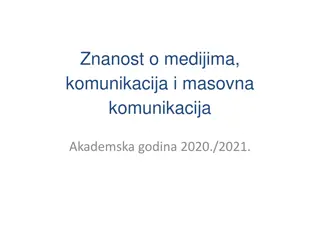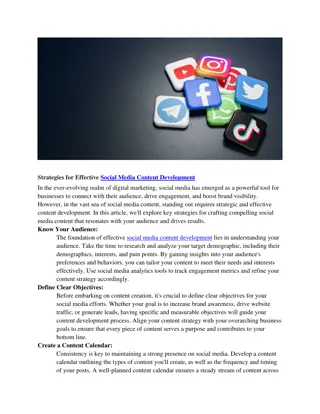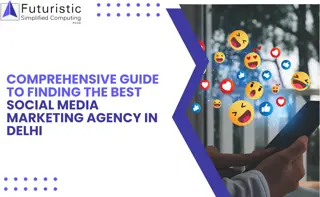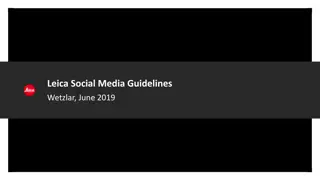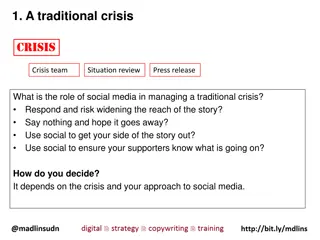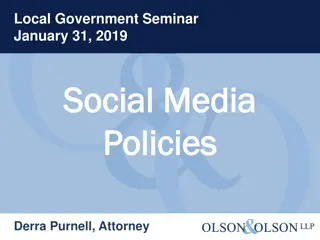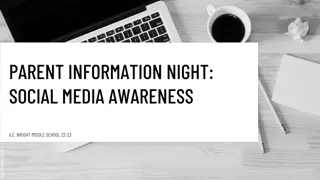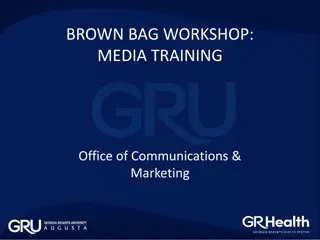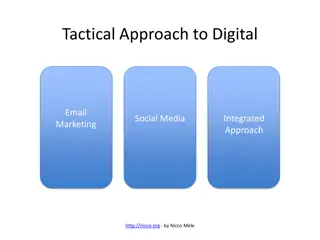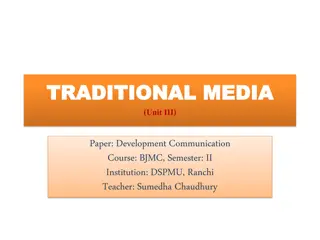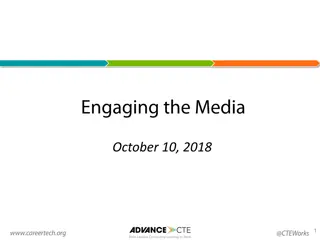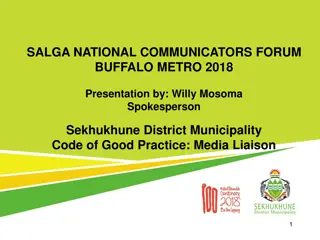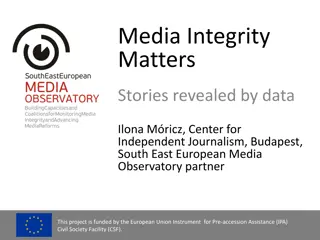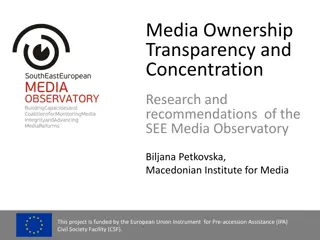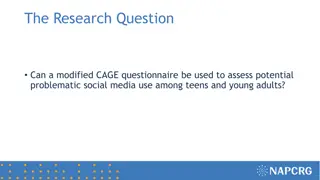Effective Social Media Best Practices for Organizations
Understanding the importance of social media in today's digital landscape, this guide emphasizes key practices for organizations to maximize their online presence. Covering topics such as brand reflection, scheduling posts efficiently, content curation, hashtag usage, maintaining professionalism, and post frequency, it provides valuable insights to help organizations navigate the realm of social media effectively.
Download Presentation

Please find below an Image/Link to download the presentation.
The content on the website is provided AS IS for your information and personal use only. It may not be sold, licensed, or shared on other websites without obtaining consent from the author. Download presentation by click this link. If you encounter any issues during the download, it is possible that the publisher has removed the file from their server.
E N D
Presentation Transcript
Social Media Best Practice
Social Media Best Practice The majority of internet users are getting information from social media rather than search engines. Social media is the primary source for referral traffic to websites now. Charities need to assume that the majority of online content is being viewed via smartphone or tablet. Social media is different from traditional online communication. Each has its own etiquette. Ignore at your peril.
Social Media Best Practice 1. Remember that your social media posts reflect your organisation s brand. Save The Children Swanage Life Boat Winfrith Village Stores/Website 2. Use scheduling functions to post updates in bulk to save time. Know when your audience is on social media. Hootsuite Tweetdeck Buffer
Social Media Best Practice 3. Tell your organisation s story by mixing it up. Share different content from different sources. Dorset Wildlife Trust City of Sanctuary* Save the Children UK 4. Content on social media must be curated. 5. Use proper punctuation, spelling, and clear, concise language. FB: no more than 4-5 lines. 6. Posts with (good) photos, images & videos get the most views. Free images available here
Social Media Best Practice 7. Don t be a hashtag spammer SPAM: Quit #Smoking! It s bad for your #health and costs a lot of #money! #cancer #cigarettes #quitsmoking Not SPAM: Study Finds 80% of All #Antibiotics in U.S. used for Big-Agriculture. Use #DorsetTogether, #everydaycounts and / or #actsofkindness 8. Be friendly, but keep professional distance because you have an audience. (DCA likes) 9. Use URL shortening services like bit.ly
Social Media Best Practice 10. Ensure that your social media accounts are connected to an organisational address rather than solely through personal accounts to maintain control. 11. Know who is responsible for posts. Be sure everyone posting knows and understands the organisational objectives and risks. 12. Agree to a particular format to ensure a single brand voice if multiple people are posting. (Who? What? When? How?) DCA Facebook
Social Media Best Practice 13. Always give credit to original sources (tag, mention, link, and thank) & be aware of legalities. DCA NHS post 14. Posting effectively requires thought and creativity, not just hitting a quota for the day or week. 15. Post regularly (daily or weekly).
Social Media Best Practice 16. Social media is a time suck. Determine the balance between capacity and benefit for your organisation. It s a tool. Don t let it enslave you. Stick to a time plan. 17. Use social media to show your expertise and value in your field. 18. Measure your impact by using analytic tools for reach, audience, and engagement. DCA Twitter DCA Facebook
Online Resources Nonprofit Tech for Good: http://www.nptechforgood.com/ CharityComms: https://www.charitycomms.org.uk/ Media Trust: https://mediatrust.org/ Small Charities Coalition: https://www.smallcharities.org.uk/marketing-social- media/ Charity Digital News Top Social Media Tips for Charities (3 minute video): https://youtu.be/QhP7pHXhEyg



